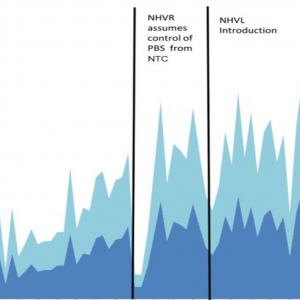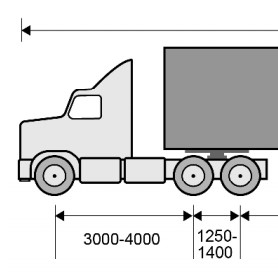
Published by:
Victor Trumper
Advantia is pleased to announce the appointment of former VicRoads staffer Victor Trumper as Senior Consultant. While some in the industry may not know Victor, many will be familiar with the high-profile outcomes of his work while employed by VicRoads. Of most importance to Advantia’s clients are the Victorian High Productivity Freight Vehicle (HPFV) networks… Read more »

Published by:
Saizo Takeuchi
The National Heavy Vehicle Regulator (NHVR) has just announced that as of 29 January 2018, the Performance Based Standards (PBS) pre-advised system of fast-tracking new Design Approval applications has been expanded. Advantia has previously written about why the pre-advised system has been hugely beneficial for reducing turn-around times in processing certain types of PBS Design… Read more »

Published by:
Saizo Takeuchi
Earlier this month the National Heavy Vehicle Regulator (NHVR) released new figures on growth of the Performance Based Standards (PBS) Scheme. The statistics speak volumes on how PBS is fast becoming the preferred framework under which new Australian heavy vehicles operate. In 2017, 20-25 per cent of all new heavy vehicles were PBS approved. In… Read more »

Published by:
Saizo Takeuchi
Advantia has previously written about how the equivalency of PBS Level 1 and General Access was broken as a result of implementing the Heavy Vehicle National Law. Australian transport ministers recently approved PBS Level 1 combinations up to 42.5 tonnes GCM for automatic General Access, pending Queensland parliamentary approval of the new legislation. This is… Read more »

Published by:
Daniel Nolan
The National Transport Commission (NTC) recently published a discussion paper titled “Assessing the effectiveness of the PBS marketplace.” The purpose of the discussion paper was to determine if the PBS Scheme was meeting the original policy intent, to evaluate the effectiveness of the approval processes and to suggest any improvements that could help benefit all… Read more »

Published by:
Saizo Takeuchi
Paul Nordengen, Vice President (Africa) of the International Forum for Road Transport Technology (IFRTT) recently published a statement outlining the success of the Performance Based Standards (PBS) pilot project in South Africa. Paul’s statement is reproduced below: The Performance-based standards (PBS) pilot project officially started in South Africa in Nov 2007 with the commissioning of… Read more »

Published by:
Saizo Takeuchi
A recent trial of the new Performance Based Standards (PBS) ‘pre-advised’ Design Approval process is now reaching its sixth month of implementation. Under a new National Heavy Vehicle Regulator (NHVR) procedure, 3- and 4-axle dog trailers towed by 3-axle trucks can enjoy a quicker, streamlined process that bypasses the PBS Review Panel. Instead, these specific… Read more »

Published by:
Saizo Takeuchi
Some great news has recently been announced for operators of Higher Productivity Freight Vehicles (HPFVs) in Victoria. VicRoads announced this month that 30-metre PBS-approved combinations will now be able to access a significant portion of the arterial road network provided the gross combination mass does not exceed 68.5 tonnes. “Operators with combinations up to 30.0… Read more »

Published by:
Victor Trumper
Australia’s Chief Scientist Dr Alan Finkel AO touted the industry’s ‘Performance-Based Standards’ approach as an example for other sectors to follow. Published in CRT News, 10 Nov 2016 [Read article]

Published by:
Victor Trumper
VicRoads has introduced new High Productivity Freight Vehicle (HPFV) networks to accommodate 30-metre A-double combinations that have been approved under the Performance Based Standards (PBS) scheme. Increased demand for these combinations led to VicRoads developing the networks with the aim of providing a smoother path to road access, without the need for individual route assessments…. Read more »







